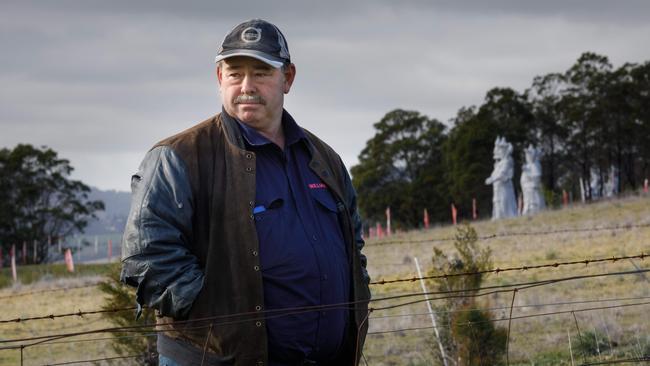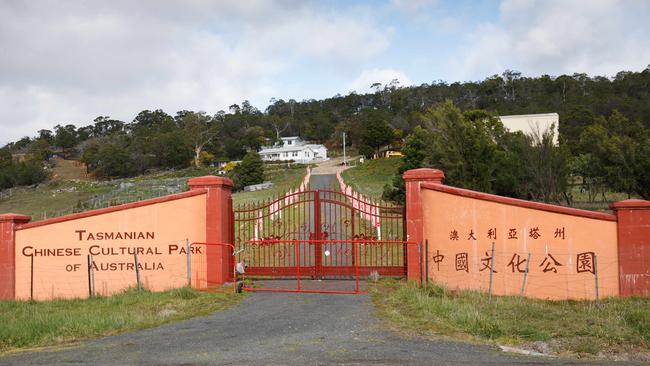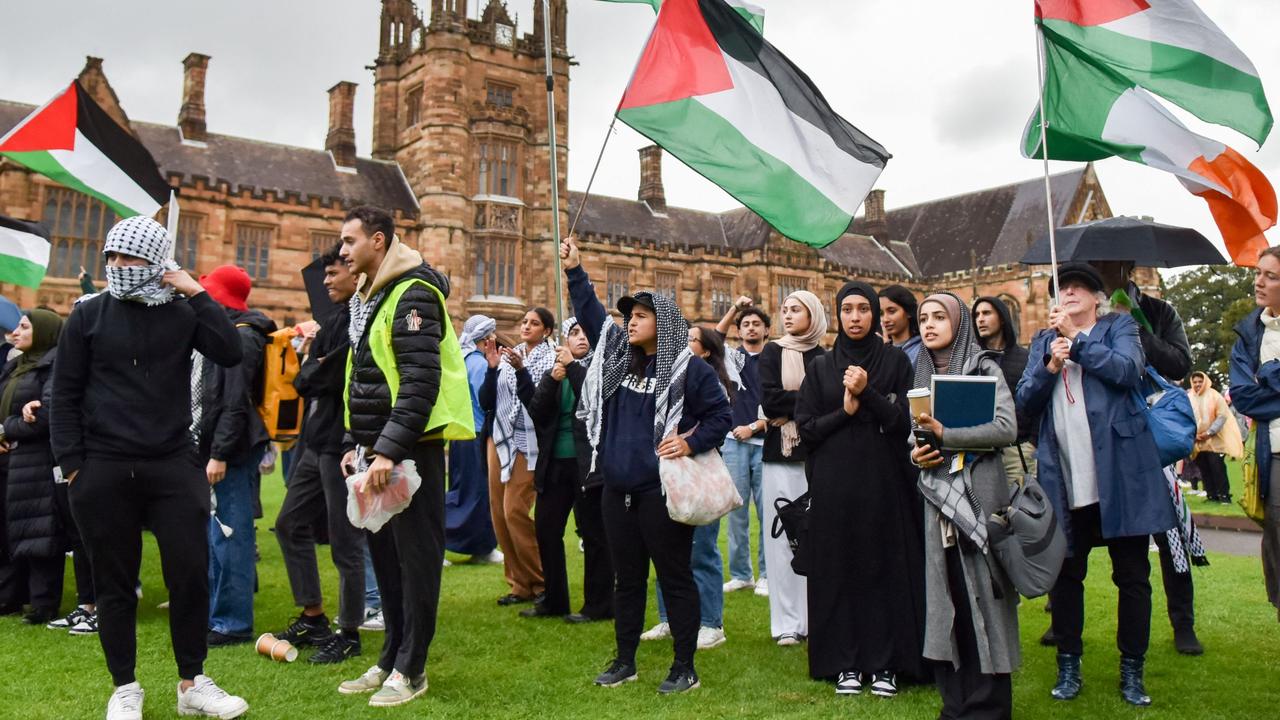Stakes high in battle for Tasmanian Chinese Cultural Park
In a valley near Hobart, a battle is underway over plans for a $1 billion Chinese Cultural Park, with geopolitical overtones but highly personal stakes.

In a verdant valley east of Hobart, a stranger-than-fiction battle is under way with geopolitical overtones but highly personal stakes.
For decades a Hobart-based sect leader with pro-Beijing views, “Master” Xin De Wang, has been quietly gathering support for his dream of a global headquarters for his form of Chinese Buddhism.
Wang and his Holy Tantra Esoteric Buddhism sect, which has an $18m property portfolio, have big plans for a 100ha slice of farm and grazing land at sleepy Campania, in the Coal River Valley, northeast of Hobart.
His $1bn Tasmanian Chinese Cultural Park of Australia includes the southern hemisphere’s largest Buddhist temple complex, by some accounts towering up to 60m, with accommodation for 100, a university and even a crematorium.
Standing in his way is a decidedly old-school neighbour, Craig Williams, whose family has been farming in the area for more than 100 years. Williams has spent $90,000 across five years in planning stoushes with the Southern Midlands Council and the sect.
These battles have been over Wang’s plan and Williams’s own dream of an expanded gravel quarry on his property to support him and his wife into middle age.
Both neighbours fear the other’s plans are incompatible with their own. Tasmania’s Department of State Growth agrees, warning of potential “land use conflict” that could “fetter” Williams’s quarry.
The council believes it has treated both sides fairly. “We’ve had a race between two neighbours to try to get applications in before the other, to try to stop the other undertaking their activity,” mayor Alex Green says.
Both sides are unhappy. The Holy Tantra accuses the council of jeopardising its development by allowing the quarry. Williams accuses the council of siding with the sect by blocking his 2015 application for a class two quarry until Wang had secured the rezoning necessary for the cultural park.
“We’re just a mum and dad looking to provide for our family and protect our way of life,” 53-year-old Williams says.

He says the council knocked back his 2015 quarry upgrade application and a second plan in 2016. He eventually won on appeal and last year the council completed its capitulation, agreeing to allow more advanced crushing and grading of gravel.
“They ended up giving us more than we asked for in the first place, but in the meantime we wasted $60,000 on the tribunal while the council spent $50,000,” Williams says. “It was all about holding up our plans to give them (the sect) time to get the rezoning approved. Holy Tantra has fought us all the way, too. They’re meant to be peaceful Buddhists, but that’s not my experience of them.”
Green strongly rejects Williams’s accusations.
“Each planning application is dealt with on its merit,” he says, adding that the original quarry upgrade plans were deficient in information.
Williams has spent a further $30,000 fighting to get the sect to plant and maintain an adequate buffer of trees to screen 8m deva statues already on site. He is tiring of the battle, putting his 20ha property on the market, but vows to fight on if he can’t find a suitable buyer at a fair price.
Wang’s plan is backed by a politically diverse group. Those making submissions backing the rezoning included independent federal MP Andrew Wilkie, former Hobart lord mayor Damon Thomas, Tasmania’s Liberal Speaker Sue Hickey and state Opposition Leader Rebecca White on behalf of the state ALP.
This is despite concern about Wang’s role as founding president of the Tasmanian branch of the Australian Council for the Promotion of Peaceful Reunification of China, formed in 2017.
The group, previously headed nationally by controversial billionaire and political donor Huang Xiangmo, denies claims by China experts of links to the Chinese Communist Party.
More recently, concern has been raised about some of Wang’s statements. These include a 2018 radio broadcast in which he urged Australian Chinese to follow Beijing “in everything we do”, and his group’s reposting last year of an inflammatory WeChat post denouncing Hong Kong protesters.
Even so, Wilkie on Friday stood by his submission supporting the cultural park project as “an ambitious and farsighted scheme … bring(ing) investment and employment”. Green, who lives about 4km from the site, also is complimentary. “It’s a significant investment in our community and it’s going to provide a wealth of cultural, economic and social opportunities,” he says.
Wang, in his mid-70s, initially declined to comment, citing “health matters as a result of the recent cold weather”. He later agreed to answer questions in written form, but a response to these was not forthcoming after several days.
Wang insists his mission in life is to disseminate dharma. His supporters say whether he achieves this via the cultural park will depend on his health — and the impact of Williams’s quarry.



